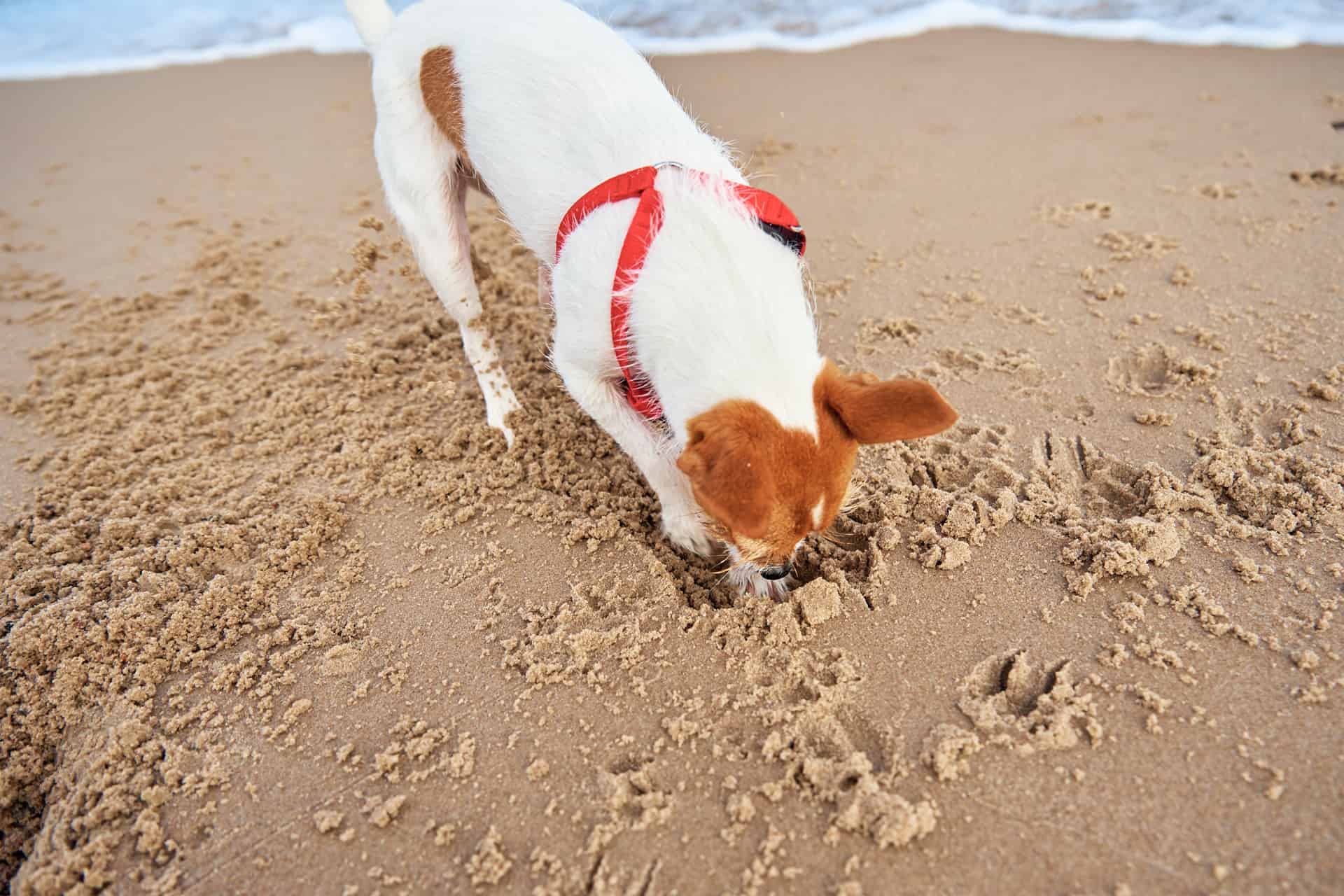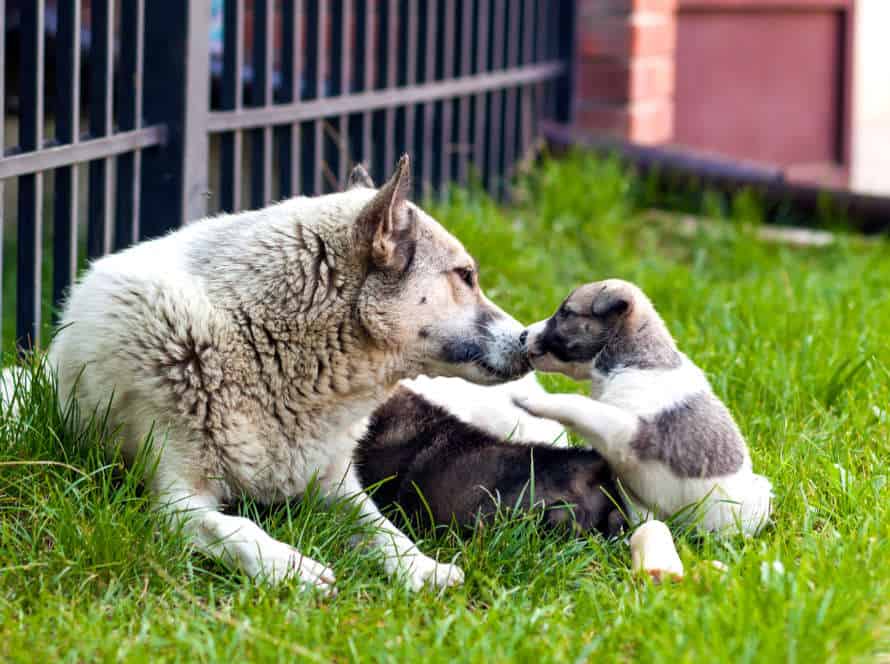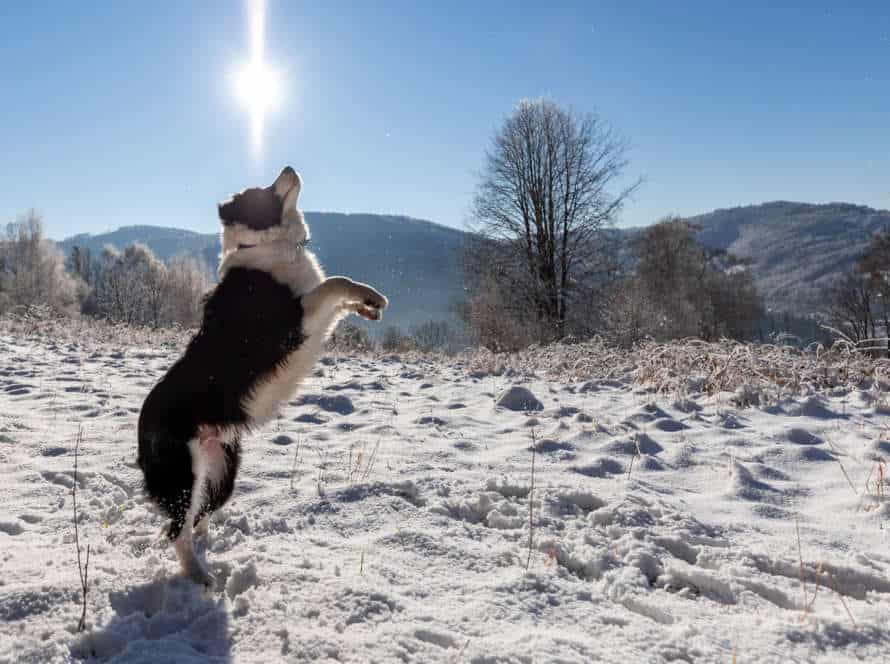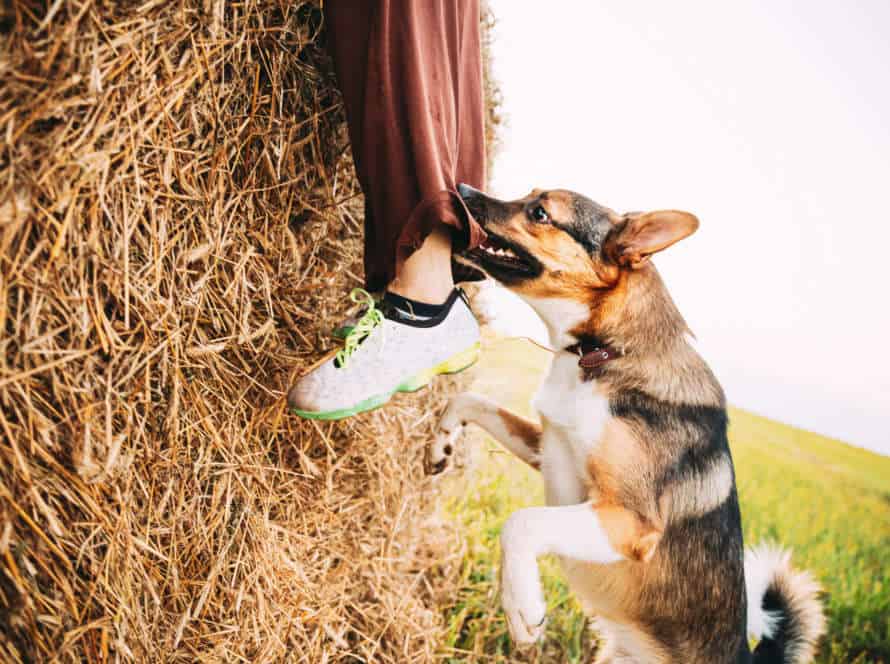Territorial Behavior: Why Your Dog Digs in the Yard
Dogs have a territorial instinct that can lead them to dig in the yard. Possible causes could be marking their scent, finding a cool spot to lie in, or burying items.
To stop this behavior, have a specific digging spot or provide toys and bones for your pup. Rule out any medical or emotional issues and make sure your pal gets enough exercise, attention, and mental stimulation.
Understanding Territorial Behavior in Dogs
Dogs have an instinctive territorial behavior. It can show up in many ways, like barking or digging. We must know why our pup acts this way and how to stop it escalating.
Why do dogs display territorial behavior?
Dogs protect their boundaries and show dominance through territorial behavior. It’s deeply ingrained in their instincts.
Examples of territorial behavior:
- Aggression towards other dogs or people entering the area.
- Destruction like chewing and digging to mark territory.
- Excessive barking or growling to alert strangers.
- Urinating or pooping to show territory.
As a dog owner, it is important to understand this behavior. Train them to recognize friend and foe. Socialization, obedience training, and positive reinforcement are great ways to ensure your pet is a happy, well-adjusted part of the family.
How to recognize signs of territorial behavior in dogs
Territorial behavior is a natural instinct in dogs. It’s seen when they defend their locations. Here are signs to recognize it:
- Growling – they feel their territory is being threatened.
- Barking – warning intruders to stay away.
- Digging – to mark their turf or create hiding spots.
- Urinating – marking the area as theirs.
- Excessive licking – calming behavior and marking territory.
It’s important to understand and manage your dog’s territorial behavior. To avoid aggression, train and socialize them. Consult a professional trainer for help.
The impact of territorial behavior on your dog’s mental health
Territorial behavior in dogs is a natural instinct. It causes them to mark and protect their territory. Digging, barking, and aggression are signs of territoriality. But this can lead to anxiety, stress, and aggression in canines if not managed.
Here are tips to manage your pup’s territorial behavior:
- Socialize your pup with other canines and humans. This will help reduce anxiety in unfamiliar surroundings.
- Teach basic obedience commands. This will improve the response when under pressure.
- Exercise regularly. This will direct their energy in productive ways.
- Seek expert help for excessive behavior that could harm you or others.
Pro Tip- Territorial behavior can be handled through proper training, socialization, and exercise. If concerned, consult a vet professional.
Common Causes of Digging Behavior in Dogs
Dogs dig for various reasons, from entertainment to marking territory. If you’re trying to prevent a pup from making a mess or managing an established digger, it’s important to know why. Here are some of the most common causes of digging in dogs:
Boredom and excess energy
Digging behavior in dogs is often caused by boredom and excess energy. But, it could also be due to territorial behavior.
If your pup seems bored, they may dig holes out of sheer boredom. Give them interactive toys and regular exercise to help deter this behavior.
If your dog digs along the perimeter, it may be a territorial instinct. This is harmless but can be frustrating. Create a designated digging area to divert the territorial impulse away from your grass.
Understand why your pup is digging to redirect their energy and give them a better environment.
Separation anxiety and stress
Separation anxiety and stress can cause dogs to dig in the yard. This is a territorial behavior. It could be an attempt to escape or to ease anxiety. Here are some of the common causes:
- Boredom – If left alone for too long, they start digging to pass time.
- Hunting instinct – Some have strong hunting instincts and dig to catch rodents or insects.
- Attention-seeking behavior – Some dig to get their owner’s attention or to show their excitement.
- Temperature regulation – Digging to find a cool place to rest in hot weather, or a warm shelter in cooler weather.
To address the behavior, give your dog exercise, toys, and attention. Crate training or behavioral training can help with separation anxiety. Protect your yard by providing designated areas for digging and supervising your dog outside.
Natural instinct and breed tendencies
Dogs have built-in instincts and breed-specific behaviors which can cause them to dig. Territorial behavior is often the cause.
To recognize this type of digging:
- Look for breeds which were bred for hunting, guarding, or protecting. These breeds have strong urges to create secure places, and digging is one way to mark territory and build barriers.
To discourage this behavior:
- Lessen the visibility of outdoor areas.
- Distract the pup with interactive toys and games.
- Provide a specific area to dig in.
- Discourage aggressive behavior towards other canines and people which may set off territorial behavior.
Keep in mind that digging is natural for dogs, so the balance is to allow them to express it without causing harm to themselves or property.
Prevention and Management of Digging
Dogs love to dig! Especially when they don’t get enough exercise or things to do. But this can lead to a problem for owners – their yards and gardens can be ruined by all that digging. Let’s see what can be done to stop it. Here are some ideas to prevent and handle digging behavior in canines.
Provide enough physical and mental stimulation
Dogs dig in the yard to show their territory and for fun. To stop this, give them physical and mental stimulation. Here’s how:
- Exercise: Give your pup enough playtime to make them tired.
- Training: Teach them tricks, commands, or obedience.
- Toys: Give them chew, puzzle, or interactive toys.
- Socialization: Let them meet other dogs and humans.
- Supervision: Don’t leave them alone for too long. If digging persists, get help from a pro.
Pro tip: A happy pup is an exercised, stimulated pup!
Ensure a comfortable and stress-free environment
For managing your pup’s digging, it’s essential to provide a stress-free environment. Digging can be due to boredom, anxiety, or lack of exercise. Here are tips to help create a comfortable atmosphere:
- Exercise and play with your dog to meet their physical and mental needs.
- Give them a safe and snug spot for rest and sleep.
- Use positive reinforcement for good behavior and discourage bad.
- Don’t punish them for digging; it can cause more stress.
- If digging persists, give them designated digging areas with treats or toys.
Pro Tip: Dogs are social and like to spend time with their owners. So, spend quality time with your pup and give them the attention they need to stop unwanted digging.
Train your dog with positive reinforcement techniques
Positive reinforcement is a humane and powerful way to train your pup. Especially if you’re trying to stop them from digging in the yard out of territorial behavior.
Here are some tips:
- Always reward your dog for good behavior, like listening to commands or not digging. Use treats, compliments, and belly rubs to encourage these actions.
- Redirect their energy to more appropriate things like toys, games, and puzzles that utilize their senses.
- Exercise and outdoor time will help burn off their extra energy and stop boredom. Think daily walks or visits to the dog park.
- Set clear boundaries in your yard and garden to discourage territory issues. Fences, hedges, and other physical barriers work great.
By using positive reinforcement techniques, it will create a strong bond between you and your pup while reinforcing good behavior and preventing unwanted digging.
Tools and Methods for Stopping Digging Behavior
Training your pup to prevent digging in the garden? It’s a challenge!
Before you try to stop it, know why they’re doing it.
There are tools and techniques to discourage doggy digging. We’ll explain them all here!
Deterrent sprays and barriers
Stop your pup’s digging with deterrent sprays and barriers! Consider these strategies:
- Spray repellent: Get a commercial spray that’s safe for dogs but stinky to them. Spray in the areas they dig to deter them.
- Make a barrier: Bury hardware cloth at least one foot deep around a perimeter to stop them digging in certain areas.
- Create a digging spot: Train your pet to dig in a certain area using the “dig” command. Reward them when they do it.
- Use a motion-activated sprinkler: Startle dogs and prevent digging with these devices.
Know why your dog digs. Causes can be boredom, anxiety, or territorial behavior. Discover the source of the digging to build a long-term solution.
Providing a digging pit or designated digging area
Dogs may dig in the yard due to instincts or boredom. But, you can help them by providing a digging pit or designated area. Here’s how:
- Choose an area in the yard that won’t get damaged.
- Use a raised bed, sandbox, or child’s pool. Fill it with soil.
- Bury toys and treats in the soil to encourage your dog to dig there.
- Supervise your pooch while they dig. Redirect if they start elsewhere.
- Praise when they use the designated area.
Pro tip: Giving a designated area makes it easier to maintain the yard and prevent damage to pipes or wires.
Seeking professional help from a dog trainer or behaviorist.
Get pro help from a dog trainer or behaviorist. This is the best way to address your pup’s digging habit. They can assess the behavior and look for any physical or emotional issues causing it. Plus, they’ll create a custom plan to help you train your pup. They can also give you useful tools and methods like redirecting their attention with toys or giving them a special digging area. Professional help is the best way to make sure your dog gets the care they need, while also helping you build a better relationship.
Frequently Asked Questions
Q: Why does my dog dig in the yard?
A: Dogs dig for various reasons. One of them is territorial behavior. It’s their way of marking their territory, exploring new scents, and satisfying their natural desire to dig.
Q: How can I prevent my dog from digging in the yard?
A: You can prevent your dog from digging in the yard by providing adequate exercise, mental stimulation, and creating designated digging areas such as sandboxes. Additionally, ensure that your dog is not bored or anxious, as this could trigger digging behavior.
Q: Is territorial digging harmful to my dog?
A: Territorial digging is not harmful to your dog, but it can damage your yard and create unsightly holes. It’s important to understand that digging is a natural behavior for dogs, and they should be allowed to express it in a controlled manner.
Q: How can I train my dog not to dig in the yard?
A: Training your dog not to dig in the yard requires consistency, patience, and positive reinforcement. Catch your dog in the act, stop them immediately, and redirect their attention to another activity. Provide adequate exercise, mental stimulation, and create designated digging areas. Always remember to praise and reward your dog for good behavior.
Q: Can burying your dog’s feces in the yard prevent territorial digging?
A: Burying your dog’s feces in the yard may prevent territorial digging as it helps to mask their scent. However, it’s not a foolproof solution, and it’s essential to provide other outlets for your dog to dig safely.
Q: Should I punish my dog for digging in the yard?
A: Punishing your dog for digging in the yard is not an effective solution. It can cause anxiety, fear, and aggressive behavior, making the situation worse. Instead, redirect their attention to another activity, provide positive reinforcement for good behavior, and create designated digging areas.







